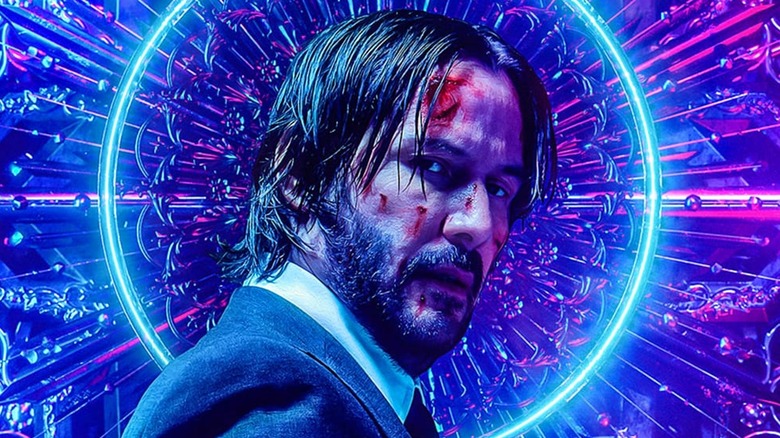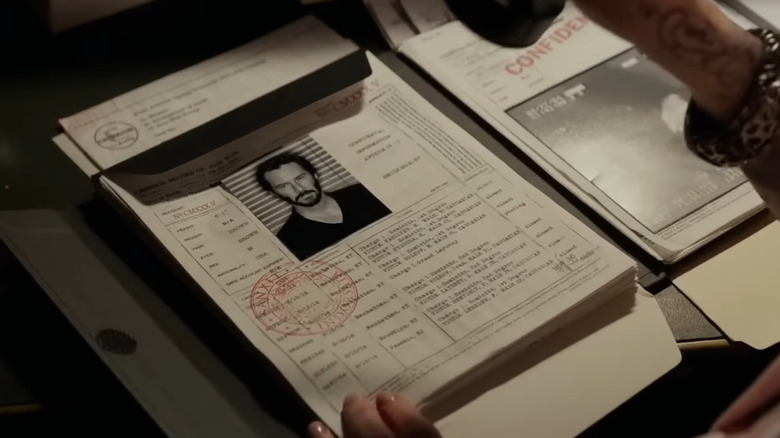John Wick: What Does Excommunicado Mean On The Continental?
The "John Wick" universe and its international assassin-for-hire operation can be a convoluted one. It seem like one out of every five people is a highly-trained killer out to get Keanu Reeves' titular hitman. The organizations behind them, the Continental and the High Table, also have a strict set of rules regarding their members' actions, particularly when it comes to what happens on the grounds of a Continental Hotel. So, when John kills Santino D'Antonio in the New York City Continental at the end of "John Wick: Chapter 2," he is declared "excommunicado." But what does that even mean?
As Winston (Ian McShane), manager of the Continental, explains, for violating company rules, John's "life is now forfeit." He will no longer be afforded the protections provided by the Continental or the High Table, which is problematic considering he ends the movie with a $14 million bounty on his head. By being declared excommunicado, John essentially becomes the number one target for the globe-spanning cabal of assassins he once worked with.
Much like a church member is shunned by their former peers when they're excommunicated, when a Continental member is declared excommunicado, they lose the support and sanctuary they'd previously relied on.
Why is the world of John Wick so mysterious?
While the lore of "John Wick" has expanded dramatically since the first movie's 2014 release, the original plan was never to include a far-reaching shadowy group like the High Table. "It was more of a covert world, not a hidden completely different mythos," series director Chad Stahelski told Thrillist in 2019 about how the movie was originally conceived. The decision to eventually incorporate that mythos into the universe, Stahelski said, was because he wanted to avoid making "a regular action movie."
Another key aspect of the Wick universe is the mysterious gold coins used by members operating under the High Table. One coin is seemingly enough to get you a room for the night, an assassination contract, or just about anything in between. The choice of keeping the currency's value vague was an intentional one, Stahelski explained, with the coins serving as more of a status symbol than anything. "It's part membership," he says. "Knowing who to trust in a criminal world would be important. So if you're dealing in cash or diamonds, anybody can get that. You can only operate the coins or go to the bad guy bank if you've proven that you are a part of that world, if you have services that are special."
While the universe of "John Wick" and its sequels is a byzantine one, it's intentionally so and succeeds in Stahelski's goal of differentiating his franchise from traditional action fare. With "John Wick" spinoffs like "The Continental" and "Ballerina" on the way, the mythology should only deepen and further set the franchise apart from traditional shoot-em-ups.

